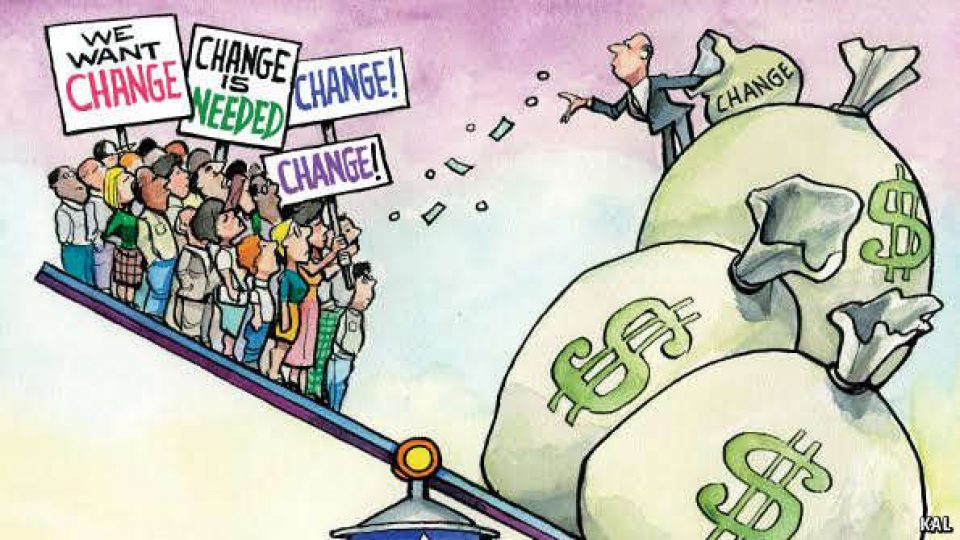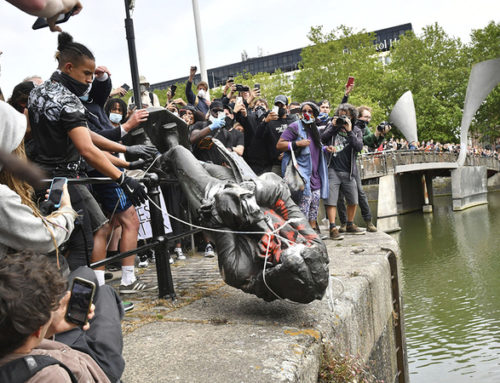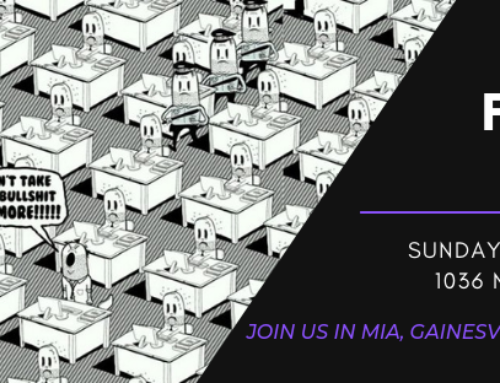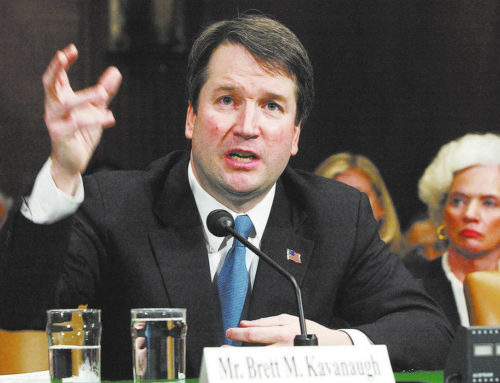From national, state, to even local politics, we are told one thing over and over again; if you want change, vote in the right people and change will be delivered to you. To be frank, our needs and the interests all of our elected politicians end up representing are diametrically opposed. We cannot just vote with a conscience, or put the people that look like us into political office to get the change we need.
The change that the masses call for, the change that we as progressive militants want to build towards, will not exist as a result of electing the “right” people or supporting the “right” bills and amendments. It comes from exerting organized pressure in our interests against these capitalist institutions and imperialist systems. The concessions that we enjoy (and that are at risk) today in addition to the bourgeois democratic rights that we’ve been told have been a constant in modern society, are the result of the masses organizing in their own interests and pulling society in a progressive direction. We all have to continue that trend.
To get to the point where we can push towards that progressive future, we have to understand why the class interests of our representatives are opposed to that of the masses.
There are always class interests at play when it comes to what our representatives support and signal boost. It is rare that politicians from any aisle will act in the interests of the masses if we want anything that could be leveraged in a progressive direction. Because our elected representatives have to act in the interests of their donors, any sort of policy they stand behind must also align with the interests of those funding them. In order to advance the capitalist class line, any verbalized desire the masses have has to be divorced from any progressive potential. Once that happens, we receive a form of general rhetoric that gets boosted leading into propaganda and policy, the most direct things that affect our lives.
Such a process happens after the masses make a call, either to address a systemic issue or to resolve it, and we get a pithy response from our representatives. The whole, “we hear you, we see you” line. They hear us, they see us, but they have to answer with solutions that maintain capitalism and imperialism. Their solutions have to fit within the existing framework even though these problems require progressive (i.e. anti-imperialist) solutions.
We scream for change, and we get support for the status quo as a response. And they will sell it to us by convincing the masses that they’re getting what they asked for by appealing to policy, identity, or whatever else is at their disposal.
An example we saw in real time was how the call to expose and address police brutality on an institutional level got mangled into our representatives pushing for the police to receive even more money while calling that restorative and humanitarian.
In the wake of the murders of George Floyd, Breonna Taylor, et. al, in the summer of 2020, representatives channeled energy into the various frameworks and campaign promises that have done little to challenge the police as an institution. An example of this is The Breathe Act, a “bill framework” to be used at state, local and federal levels with the stated goals of divesting “taxpayer dollars from brutal and discriminatory policing” and investing “in a new vision of public safety.” On its surface it seems to mainly concern itself with the allocation of funding and grants to incentivize changes in state policy around the criminalization of drugs; but it offers no real solution to the policy brutality we experience in our communities.
Our elected representatives heard our calls for justice that took shape with various demands and answered with either rehabilitating the image of the police, through giving them more money, or attempts to divert the function of the police to other institutions, by giving those institutions more money. The limitations of this strategy should be clear; essentially rewarding institutions like the cops is only a strategy to tackle police brutality if one of your interests is making sure law enforcement maintains the power it has and thus its role in capitalist hegemony.
In South Florida specifically, we can see these pitfalls as well. The new mayor of Hialeah, Esteban Bovo, has a record of supporting the police and the prison system. Even in 2020 and beyond, he has voted in favor of an exploratory effort to build a new jail in downtown Miami and has also supported former mayor Gimenez’s resumption of 48-hour detention at the behest of immigration officials. The support of the jail effort isn’t even unique to him; Miami-Dade County mayor Daniella Levine-Cava also has voted in favor of the effort the second time it was presented to the city commission and also has a voting record in favor of the police. Elected officials proceeded with their agenda, despite the endless protests in Miami that attempted to demand real progressive change.
Just as we see this process happening through policy, we can see it happen through identity politics as well.
This isn’t even limited to South Florida. Eric Adams, the newly elected mayor of New York City, ran on a platform that positioned him as someone interested in police reform and someone who could be trusted as he came from the communities he wanted to represent. So, it makes sense that his first few months in office would come with him supporting the NYPD, pledging to reinstate solitary confinement in Rikers Island, and having the co-founder of an investment firm stay on his transition team for housing issues even after a building the firm partly owned caught fire due to negligence. In addition to, more recently, reviving the NYPD unit responsible for Eric Garner’s death and discouraging videotaping police officers. Progressive change does not come once we are able to see ourselves “represented” in positions of power; people who look like us do not always share our class interest.
Ketanji Brown Jackson, Biden’s Supreme Court Justice nominee, is getting billed to us as, potentially, the first Black female Supreme Court Justice with conscientious public defender’s record. Even though her nomination has been endorsed by a major police chiefs organization. The narratives coming up about her and around the process of getting her to the SC have two purposes, endearing us to her based on identity and previous record, while attempting to convince the masses that her appointment will bring justice to minorities who are dominated by the legal system.
At the end of the day, her appointment has little to do with the masses’ will and much more to do with the aims and maneuvering of the Biden administration. While we can already see that the Supreme Court is not a progressive institution or even one that always acts in the best interests of the masses, one black woman and the Biden administration will not change that fact. What it can do is make people believe that they are being listened to, that putting up someone who looks like them to one of the highest positions, will weaken reactionary institutions when that will not be the case. We will never see change by electing people who look like us because identity politics is a form of populism that seeks integration within capitalism, rather than the destruction of systems that oppress and dominate us.

“We can’t solve problems by using the same kind of thinking we used when we created them.” Political Cartoon by Simon Kneebone
What will weaken these institutions is independent organizing towards a progressive direction, with reforms and calls against capitalism and imperialism. We cannot hedge our bets against the promises of politicians from any party or government office, we must develop the power to actualize our calls collectively. As much as reforms may be necessary to mitigate the domination we all experience under imperialism, we cannot reform the system away under the best circumstances and capitalist interests will always make sure that our reforms happen under less than ideal circumstances.
Revolution is not a system upgrade; we should be working to address and understand the calls coming from the masses and making sure that we can pinpoint the ways those calls can weaken capitalism and imperialism. Especially in a time of dour class consciousness. No matter how radical these calls may sound initially or how much they address material reality, if we don’t have the power and organization to keep these calls progressive, those aspects will be stripped away. We need to organize independently. Not in a populist way, that ignores class interest entirely. Not just to make sure that our class interest is represented, but also to make sure that we, and others, are aware of how class struggle can warp the things we call for.







